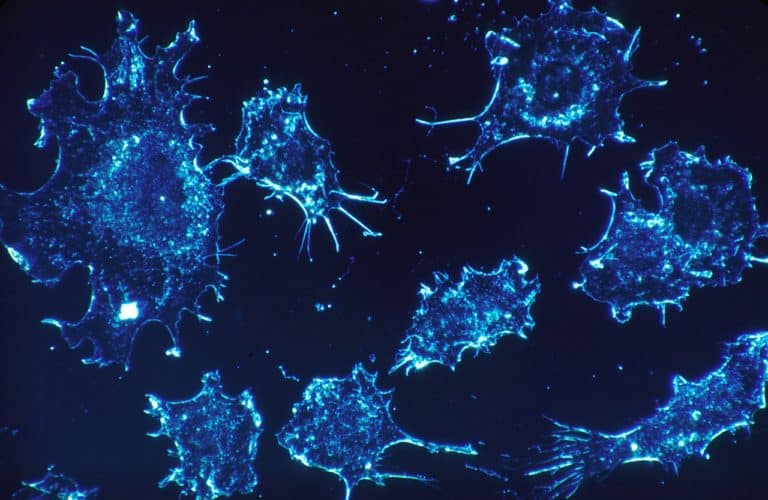Late stage prostate cancer symptoms may include urinary symptoms as well as pain or fatigue. While screening has led to improved diagnosis and treatment of prostate cancer, 5% to 10% of newly diagnosed patients have initial late stage prostate cancer symptoms. Most patients diagnosed in early stages do not have symptoms, but patients more commonly experience symptoms in late stage prostate cancer.
What is late stage prostate cancer?
In prostate cancer, late stage generally implies two things—metastasis and lack of response to treatment. Metastasis refers to the spread of your prostate cancer. Prostate cancer can travel to other parts of the body through your blood stream or the lymphatic system. The lymphatic system produces antibodies that are essential to fight off infections.
Prostate cancer most commonly metastasizes to:
- Adrenal gland
- Bone
- Liver
- Lung
The second feature of late stage prostate cancer is a lack of response to treatment. Late stage prostate cancer implies that patients have failed or have not tolerated common treatments. This may manifest as a rising PSA in a patient who was previously well controlled following surgery or radiation. Or, it may be a worsening of disease on a CAT scan or other imaging test. Finally, a small percentage of men are initially diagnosed with late stage disease.
What are the late stage prostate cancer symptoms?
Prostate cancer is often without symptoms early on. Because of the popularity of the PSA test, many men are diagnosed early. However, as prostate cancer progresses, many men do experience symptoms.
Many of the symptoms below can also occur in other diseases of the prostate such as benign prostatic hypertrophy (BPH) or prostatitis. BPH is a noncancerous enlargement of the prostate which presses on the urethra (the tube that goes from the kidney to the end of the penis that your urine passes through) to cause symptoms. Prostatitis is an inflammatory condition, sometimes associated with a bacterial or viral infection, leading to prostate symptoms. Late stage prostate cancer symptoms can include:
- Weak urinary stream
- Incomplete emptying and frequent starts and stops when urinating
- Hematuria or blood in the urine
- More frequent urination
- Dysuria or pain when urinating
- Bone pain
- Weight loss
- Fatigue
Treatment options for late stage prostate cancer
There are no cures for advanced prostate cancer, but the disease can be controlled. This generally is achieved by attempting to slow the growth of the cancer or decrease symptoms such as pain. A number of options are available:
- Androgen deprivation therapy: This therapy targets the hormones that fuel the growth of prostate cancer. Orchiectomy or the surgical removal of the testicles can drastically decrease androgen levels. On the other hand, there are a number of different drugs that can also block the production of androgens. This is often referred to as a “medical orchiectomy.” Unlike surgery, the effects can be reversed by stopping the treatments.
- Chemotherapy: Docetaxel is a specific chemotherapy that has been shown to prolong survival in patients with symptoms of late stage prostate cancer. It is usually combined with prednisone. Cabazitaxel is another chemotherapy for late stage prostate cancer.
- Immunotherapy: In immunotherapy, treatments can be specifically targeted to cancer cells based on certain cells that the cancer, but not the patient, possesses. This is one of its main distinctions from other types of cancer therapy that cannot differentiate between cancerous and noncancerous cells. Provenge is an immunotherapy in which a patient’s immune cells are harvested, modified to target and attack prostate cancer cells, and then infused back into the patient.
- Zytiga (abiraterone): This drug is an anti-androgen that inhibits the formation of testosterone, one of the hormones that cause prostate cancer cells to grow.
- Xofigo (radium-223 dichloride): This treatment is a radioactive injection used with bone metastases and when your prostate cancer is resistant to medical or surgical treatments that attempt to lower testosterone levels.
- Xtandi (enzalutamide): This is one of the few oral treatments for advanced, castration-resistant prostate cancer. Xtandi works by slowing the growth of prostate cancer as it decreases its size.
Be sure to discuss all the potential treatment options with your doctor.
Read more in our Prostate Cancer Health Center.
Reference
American Cancer Society. Prostate cancer.







